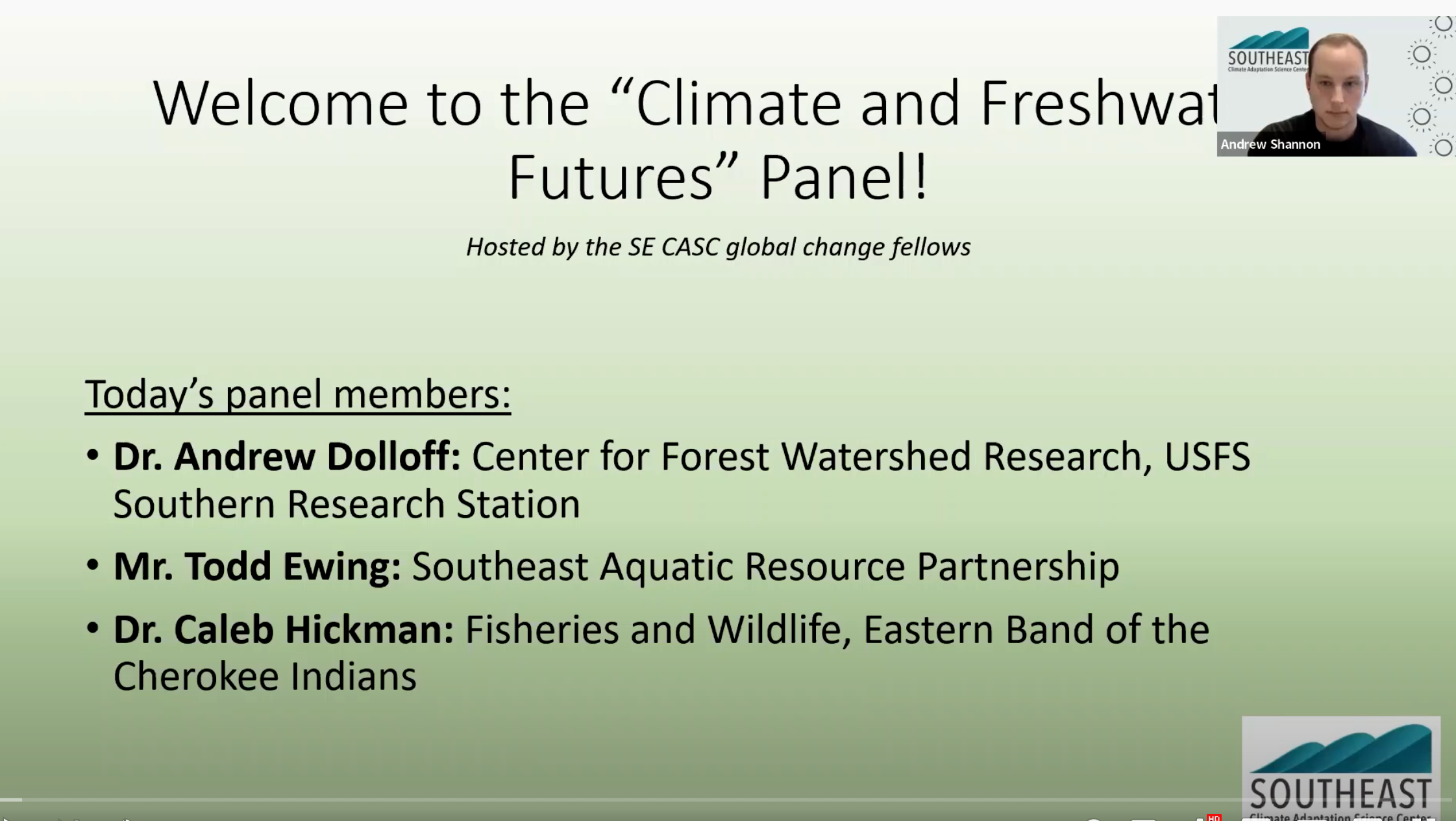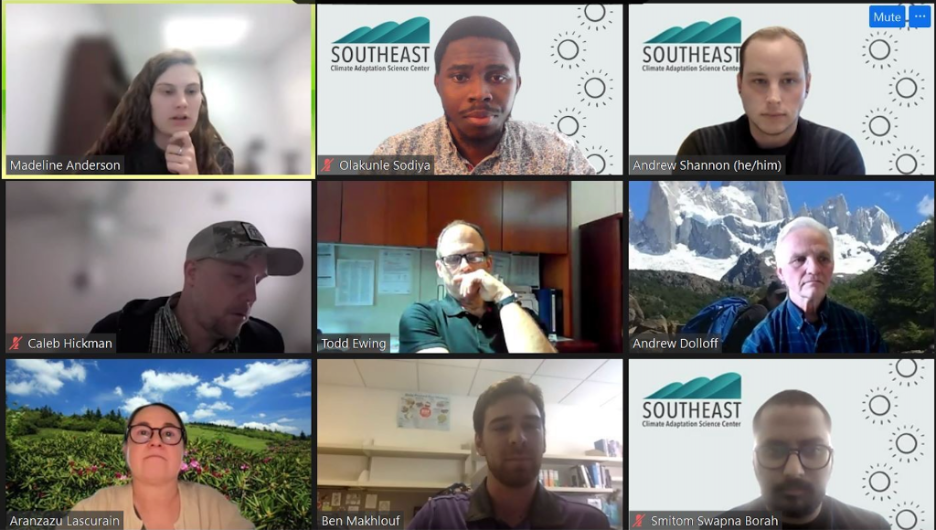Global Change Seminar Summary: Climate & Freshwater Futures

This post was written by 2021-22 Global Change Fellow, Regina Ayala Chavez, summarizing the second webinar in the Spring Global Change Seminar series, Climate & Freshwater Futures, on April 8, 2022. The discussion was moderated by Global Change Fellow, Andrew Shannon. The seminar planning team also included Madeline Anderson, Smitom Borah, Ben Makhlouf, and Olakunle Sodiya.
View a recording of the discussion.
Panelists:
- Dr. Andrew Dolloff, Center for Forest Watershed Research, USFS Southern Research Station.
- Mr. Todd Ewing, Southeast Aquatic Resource Partnership.
- Dr. Caleb Hickman, Fish, and Wildlife, Eastern Band of the Cherokee Indians.

This seminar series was divided into two parts. On Thursday, April 7, a screening film called “Hidden Rivers” was projected on campus for everyone to watch it. The film is a documentary on freshwater ecosystems of the southern Appalachians. The second part of the seminar was a discussion panel about the future of freshwater systems in the Southeast, with the three special guests mentioned above. The panel took place on April 8, and it was online.
Dr. Caleb Hickman spoke as the first presenter. He has been in the world of ecology for almost 20 years. He and his team work with various game and non-game fish and wildfire, and in the aquatic realm, they work mainly in the intersection of research and management, which is called “adaptive research.” They usually take a social and ecological framework, which means taking the information they are gathering and trying to learn from it and providing information to decision-makers and the communities they work for. He works for the Eastern Band of Cherokee Indians, so he focuses on details about the aquatic systems that are particularly beneficial for this culture. Even when the tribe takes pretty regulatory solid actions, they work very closely with the State of North Carolina and the federal government.
Todd Ewing spoke as the next presenter. He got his bachelor’s degree in biology from UNC-Charlotte and his master’s degree in biology from Appalachian State University. Until 2008 he worked with the Wildfire Commission as a fisheries biologist. After that, he became the supervisor of the Aquatic Wildlife Diversity Program. The program is responsible for managing non-game fish, mussels, and crayfish across North Carolina. Next week he will start a new job as the coordinator of the Southeast Aquatic Resources Partnership; he will be focused on aquatic landscape conservation. The landscape covers 25 states in the Southeast, from Texas and Oklahoma to Virginia. He mentioned that their work is similar to the efforts that Caleb described. Much of the work is related to habitat improvements such as barrier removal, facilitating dam removals, restoration, etc. He described the joy he gets from his career, noting that he has been enjoying doing this since he was a kid but now gets paid for doing it.
Dr. Andrew Dolloff was the last presenter. He grew up in a coastal town, where his father worked in the National Marine Fisheries Service. This led him to spend many of his formative years putting his hands in tanks and learning about marine and aquatic organisms in general. Dr. Dolloff spent several years of his professional life in different parts of the country, but he ended up in the Appalachians again after all. He explained that the beauty of this place is the wide variety of species in the stream; while you can find five species in Alaska, you can find 30 or 40 in North Carolina. His work now consists of revising and editing conservation proposals, researching brook trout and the factors that influence their production, and researching the best management practices contributing to the SARP database on aquatic organisms’ passage.
After their presentations, our three panelists answered questions from the audience. The audience (62 attendees) consisted of various career levels and areas of interest from NC State and other institutions. The questions covered habitat restoration, future impacts and adaptability of freshwater systems due to climate change, decision-making process and actions, and management plans. One of the main takeaway lessons from this seminar was that decision-making is complicated and involves consensus from various groups. Still, it can be done and has been done successfully in the past. They concluded by discussing the importance of a professional, respectful, and good relationship between researchers, managers, government agencies, and the public to make any water project viable. After one hour of phenomenal discussion, we thank the presenters for their time and their kindness in sharing with all of us their knowledge.
- Categories:
